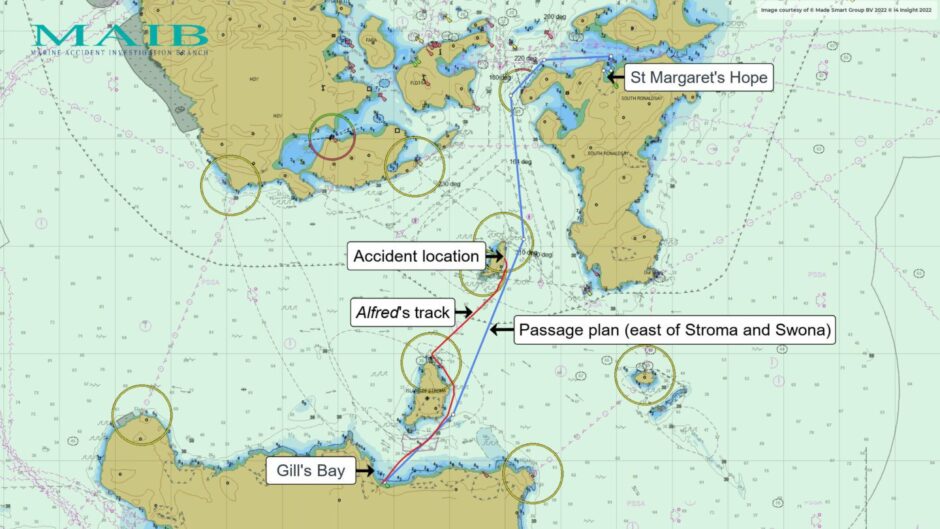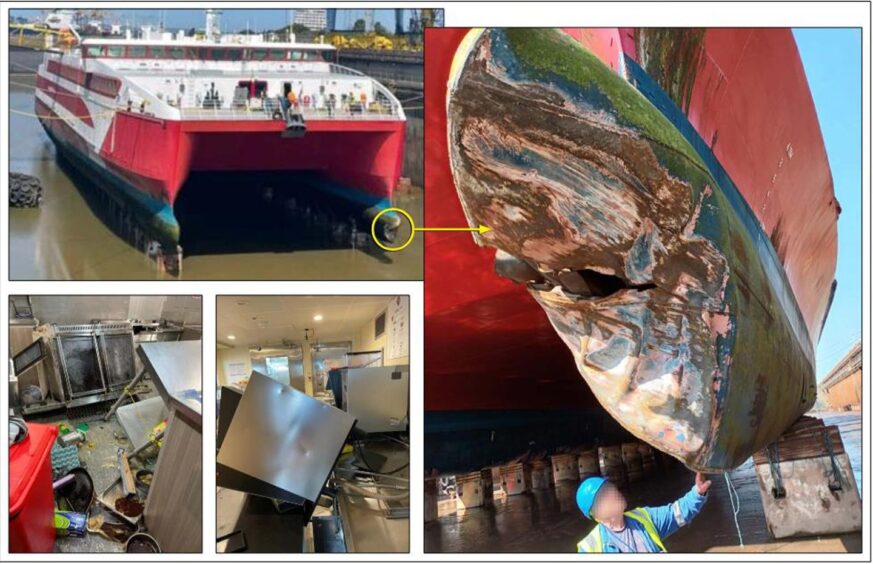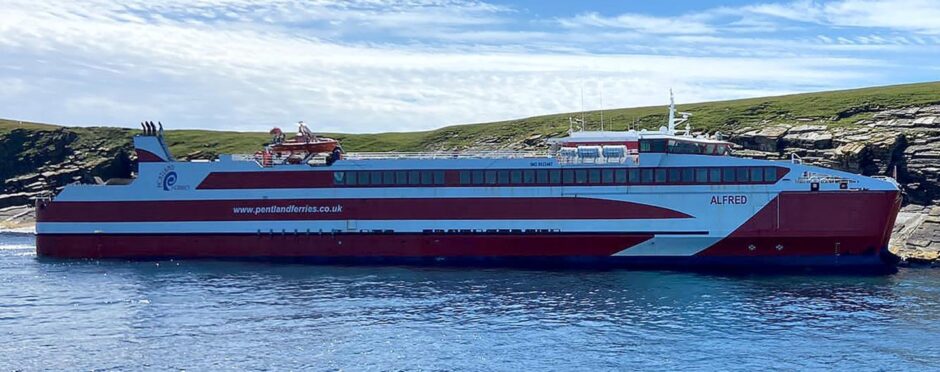A report into the grounding of a ferry off Orkney states the incident happened “almost certainly” because the master fell asleep.
MV Alfred grounded off the east coast of Swona Island in the Pentland Firth at about 2pm on July 5, 2022.
The impact caused injuries to 41 people, as well as damage to the port bulbous bow and almost all of the vehicles onboard.
The Marine Accident Investigation Branch (MAIB) has now published its report into the incident.
Inspectors have found the master “almost certainly fell asleep” for about 70 seconds and allowed the ferry to swing towards land.
When he became aware, he was unable to prevent the ferry striking the rocks at 13 knots.
The report states the ship often passed “too close to land” which left “little margin for error”.
Investigation into MV Alfred grounding off Orkney
The investigation found five crew members and 36 passengers were injured, with 10 suffering from “serious” injuries.
One patient had to be flown to the mainland for treatment to a compound arm fracture.
Describing the incident, the report states: “Many of the ferry’s passengers and crew were thrown to the deck when the vessel struck the rocks; this included the chief officer, who had rushed to the bridge when he heard the engines go astern.”
CCTV footage from the vessel shows cars and lorries rolling forward on impact which resulted in 35 out of 37 vehicles being damaged.
MV Alfred was able to refloat on the rising tide that afternoon but was then withdrawn from service for four weeks.
Andrew Moll, chief inspector of marine accidents, said: “Lots of safety action has been taken as a result of this accident and I am encouraged by the actions taken by Pentland Ferries to address the issues raised in this report.
“However, this accident offers a wider opportunity for lessons to be learned across the maritime industry.
“Alfred’s master routinely operated very close to the coast leaving little margin for error when they found themselves in an unsafe situation. Regardless of the type of vessel you are operating, it is critical that a safe passage plan is made and that it is followed.
“Always allow sufficient sea room to enable action to be taken in good time if things are not going to plan.”
Changes made by Pentland Ferries
MAIB issued recommendations to Pentland Ferries including to ensure passage plans are available and to make sure to capture all passenger details and injuries after an accident.
The reports adds Pentland Ferries has taken “significant” action to improve its procedures and strengthened its emergency response plans and training.
Mr Moll added: “Finally, this case highlights the importance of management assuring themselves that plans and procedures they have put in place are actually being followed.
“If you have management oversight of a vessel or maritime operation, ask yourself; do I know that our crews and front-line staff are following our procedures, and are our plans fit for purpose in a real-life emergency situation?”


